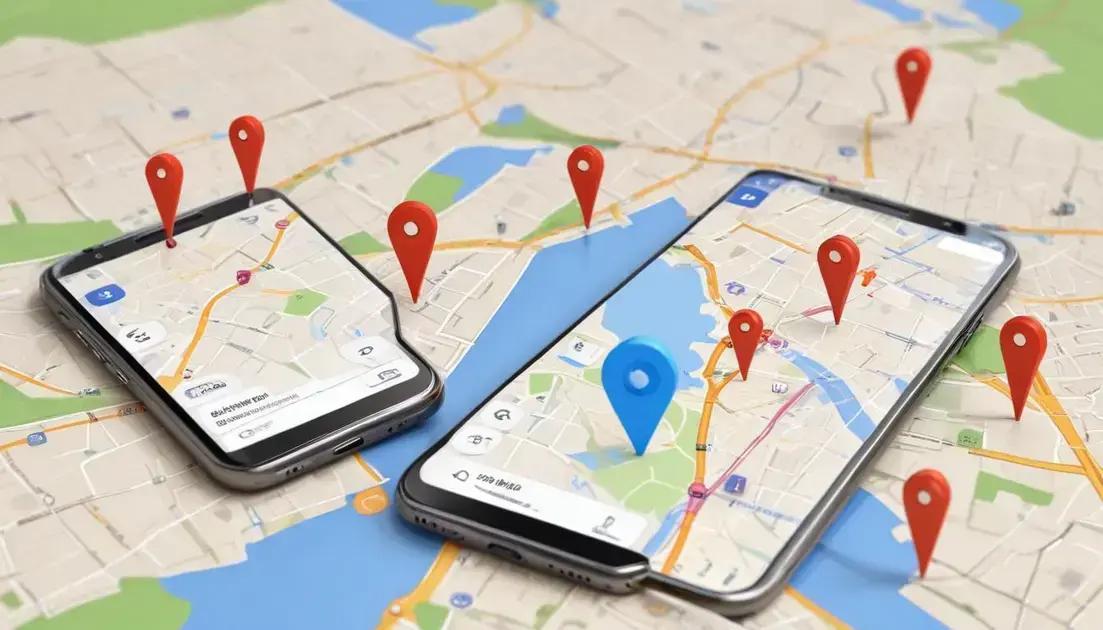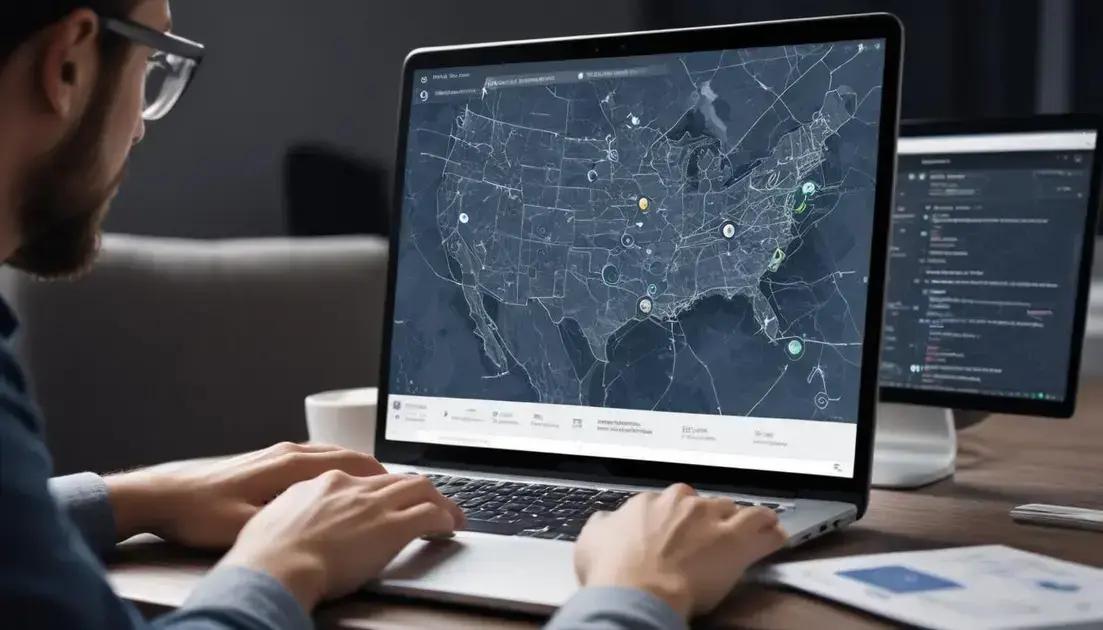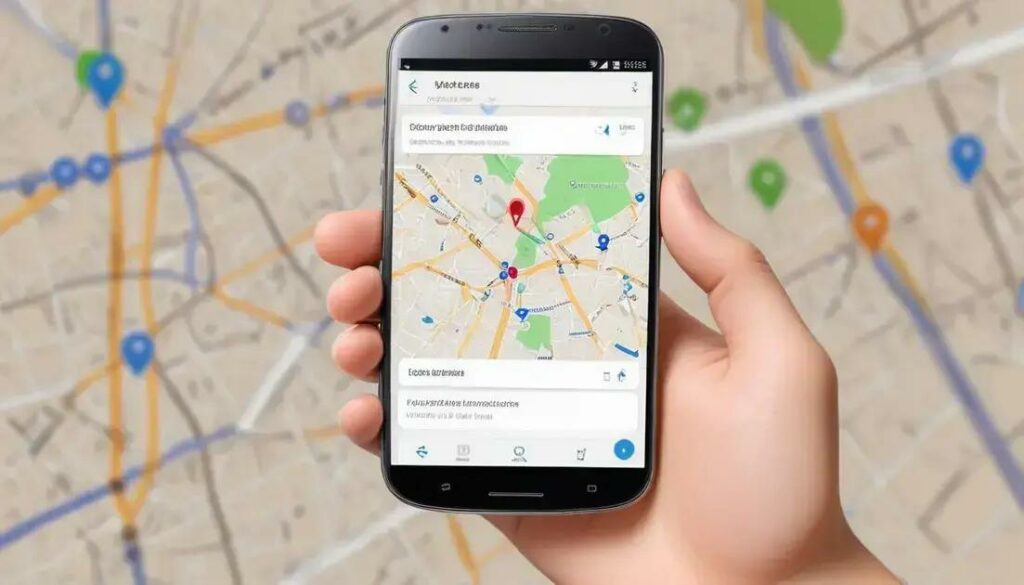Geolocation has transformed how we interact with our surroundings. From finding the best coffee shops nearby to tracking deliveries, the possibilities seem endless! If you’re curious about how address lookup enhances the user experience, keep reading!
Understanding Address Lookup in Geolocation
Understanding address lookup is key to utilizing geolocation effectively. When you use an app to find a location, it often starts with an address lookup. This process helps convert a user’s input, like a street name or a landmark, into precise geographic coordinates.
How Address Lookup Works
Address lookup takes the address you enter and checks its accuracy. It checks databases to find exact matches or close suggestions. This is important because an accurate address leads to better results. If you enter “123 Main St,” the app makes sure that address exists in its system.
Benefits of Accurate Address Lookup
When address lookup is accurate, users have a better experience. They get direct routes and less hassle. This accuracy is crucial for delivery services or ride-sharing apps. A small mistake in the address can lead to delays.
Technologies Used in Address Lookup
Several technologies support address lookup. Geocoding is one of the most common. It takes addresses and turns them into coordinates. These coordinates are used for mapping and directions. Another is validation software, which ensures that entered addresses are correct before being stored.
Address Lookup and User Trust
When apps provide reliable address lookups, users trust them more. They feel confident that their location needs will be met. This trust is very important for apps that rely on frequent user interactions.
Overall, understanding address lookup helps developers create better applications. It improves user satisfaction and can lead to increased app usage and loyalty.
Functions of Geolocation Applications

Geolocation applications serve many useful functions. They help you find your way, locate businesses, and connect with friends. These apps rely on GPS technology to pinpoint your exact location. This makes it easier to navigate and explore your surroundings.
Navigation and Directions
One of the main functions is providing navigation. Geolocation apps offer turn-by-turn directions. This means you get clear guidance on how to reach your destination. It reduces the chances of getting lost and saves time.
Local Business Search
Another important function is finding local businesses. You can easily search for restaurants, shops, and services nearby. Just type in what you need, and the app shows you options along with directions.
Social Connectivity
Geolocation apps also help you connect with friends. You can share your location and see where they are in real time. This is great for coordinating meet-ups and ensuring everyone arrives on time.
Location-Based Services
Many apps offer special features based on your location. For instance, you may receive alerts for sales at stores near you. This feature can help you save money while shopping.
Safety Features
Safety functions are crucial too. Some geolocation apps allow you to share your location with trusted contacts. This can be reassuring when you’re traveling alone or in unfamiliar areas.
Overall, geolocation applications enhance daily life. Their functions make tasks easier and more efficient, connecting people and places like never before.
Importance of Accuracy in Address Validation
Accuracy in address validation is very important. It ensures that users enter the right information into apps. When addresses are validated, it helps avoid mistakes that can cost time and money.
Why Accuracy Matters
Incorrect addresses can lead to delivery issues. When a package is sent to the wrong place, it creates confusion. This can frustrate customers and result in lost sales.
Improving User Experience
When apps validate addresses, they provide better user experience. Users appreciate knowing that their input is correct. This builds trust and encourages them to use the app again.
Reducing Costs
Accurate address validation can reduce costs for businesses. When deliveries go to the right address, companies save money on returns or reshipments. This can lead to significant savings over time.
Enhancing Data Quality
Address validation also improves data quality. Good data helps companies make smart decisions. With accurate addresses, businesses can analyze trends and understand their customers better.
Meeting Regulatory Standards
In some industries, accuracy is required for legal reasons. For instance, financial institutions must have correct addresses for compliance. Address validation helps them meet these important standards.
In summary, accuracy in address validation is essential. It impacts customer satisfaction, costs, and overall business efficiency.
Technologies for Developing Geolocation Apps

Developing geolocation apps relies on several technologies. Each technology plays a vital role in tracking locations and providing accurate information.
GPS Technology
The core technology is GPS, or Global Positioning System. GPS allows devices to pinpoint their exact location anywhere on Earth. This is essential for navigation apps and location services.
Geocoding Services
Geocoding transforms addresses into geographic coordinates. When you enter an address, geocoding services convert it to a location on a map. This ensures users can easily find places they want to go.
Mapping APIs
Mapping APIs provide developers with necessary tools to integrate maps into their apps. These APIs offer features like route planning and real-time traffic updates. Popular mapping APIs include Google Maps and Mapbox.
Cloud Computing
Cloud computing is also important. It helps store and manage large amounts of location data. By using the cloud, apps can quickly access this data from anywhere, enhancing performance.
Mobile Technologies
Mobile technologies are key for geolocation apps too. They enable apps to run smoothly on smartphones and tablets. Developers use programming languages like Swift for iOS and Kotlin for Android to create these apps.
Overall, understanding these technologies helps developers create effective geolocation applications. They can offer users reliable experiences and accurate location services.
Security and Privacy Considerations
When using geolocation apps, security and privacy are very important. Users need to trust that their information is safe. Without proper measures, sensitive data can be exposed.
Data Protection
Data protection is the first step. Apps should encrypt user data to keep it safe from hackers. Encryption makes it unreadable without the right key. This way, even if data is stolen, it remains secure.
User Consent
Also, apps must get user consent before collecting location data. Users should know why their information is being used. Clear explanations help build trust and ensure everyone is on the same page.
Limit Data Collection
Limiting unnecessary data collection is vital. Apps should only gather what they need to function. For instance, if an app only needs location data for navigation, it shouldn’t collect personal details like contact lists.
Regular Audits
Regular security audits can help. These audits check for vulnerabilities in the app. Developers should fix any issues found during these checks to keep user data safe.
Transparency Policies
Finally, maintaining transparency enhances user trust. Apps should provide clear privacy policies. Users must understand how their data is used and what their rights are regarding data handling.
By prioritizing security and privacy, geolocation apps can gain user confidence. This trust leads to better user experiences and increases app usage.
Practical Tips for Developers

For developers creating geolocation apps, practical tips can make a big difference. Following best practices helps build better apps that users love.
Know Your Users
Understanding your users is key. Know what they need and how they’ll use the app. Gather feedback to make improvements. Listening to user opinions can guide your design decisions.
Test for Accuracy
Always test your app for accuracy. Make sure geolocation features work as intended. Users should receive correct location results every time. Conduct tests in different environments and devices to verify performance.
Focus on Speed
Speed matters. Users expect quick responses from apps. Optimize your code and reduce unnecessary data calls. A fast app keeps users engaged and happy.
Keep It Simple
Simplicity is crucial. A clean interface will make navigation easy. Avoid clutter and complicated menus. Users should find what they need quickly without getting confused.
Ensure Privacy
Always prioritize user privacy. Let users know how their data will be used. Obtain consent before collecting location data. Be transparent to build trust.
Update Regularly
Regular updates help keep your app fresh. Fix bugs and improve features based on user feedback. Ensure compatibility with the latest devices and operating systems.
By following these tips, developers can create effective geolocation apps. User satisfaction will lead to higher engagement and success.




